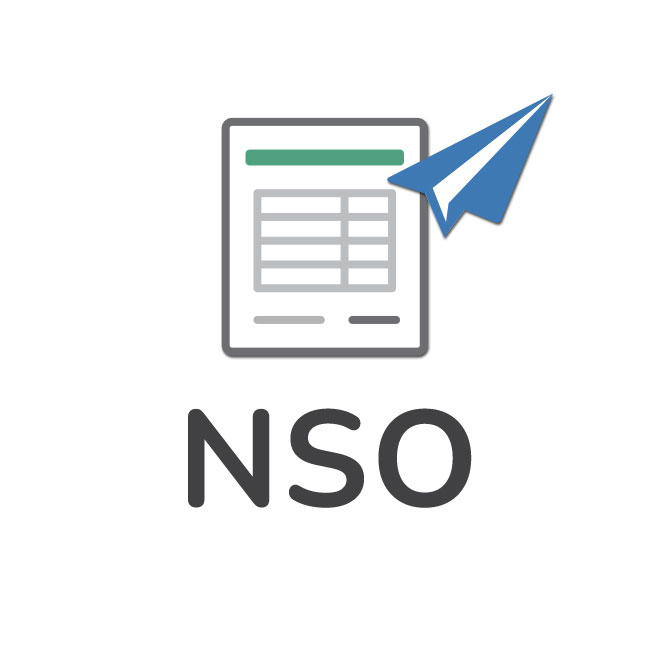Among the various aspects of digital transformation, electronic ordering plays a crucial role in making the purchasing and supply management process more efficient.
Electronic orders are a method of transmitting purchase orders through electronic platforms that allow orders to be sent and received quickly and efficiently. They are particularly relevant for companies, both public and private, that handle a high volume of business transactions. This includes suppliers, distributors and retailers who need an efficient way to manage the sourcing and supply of goods. Furthermore, in some sectors, the adoption of electronic orders may be made mandatory to ensure the transparency and traceability of transactions.
What is the Nodo Smistamento Ordini – NSO
The Nodo Smistamento Ordini (NSO) is the system for the validation and transmission of electronic documents certifying the ordering and execution of purchases of goods and services of the Public Administration. From 1 February 2020, it has become mandatory for all bodies of the National Health Service (NHS) to send purchase orders relating to goods, such as drugs or medical devices, via the NSO
Purchase orders placed by Public Administrations to their suppliers must be sent via the NSO platform.
Electronic ordering via NSO is mandatory for the following entities:
- Public Administration or National Health Service Bodies who purchase goods and/or services;
- Suppliers of the National Health Service entities.
What is the PEPPOL network
PEPPOL, Pan-European Public Procurement Online, is the network that manages all the documents of the purchasing cycle (Orders, Delivery Notes and Invoices) using the same format and transport infrastructure between customer and supplier both nationally and in Europe and international. The PEPPOL network facilitates e-procurement processes by providing a secure and standardized environment to facilitate electronic exchanges of business documents between organizations in Europe and in the other continents connected to it, improving efficiency, transparency and access to global markets by allowing a reduction in errors, costs and processing times.
Advantages of Electronic Orders
Using electronic orders is not only a mandatory requirement for some entities, but it also brings significant benefits to those who use it.
- EFFICIENCY Areduction in the time spent manually managing orders by improving processing speed and reducing the margin of error.
- TRACEABILITY Greatertransparency throughout the entire purchasing process; allows companies to monitor the status of orders and identify any problems or delays in the process.
- BUDGET CONTROL Better budget management through thestandardization of order approval processes and sales/purchase flow control.
- ERROR REDUCTION Minimization of data entry errors and discrepancies between order and purchased goods/service, improving the accuracy and precision of transactions.
- INTEGRAZION Ease of integration with other business systems, such as ERP accounting software, for a smoother workflow.
The phases of the electronic order cycle via NSO / PEPPOL
The adoption of electronic ordering demonstrates a commitment to innovation and modernization, strengthening the customer/supplier relationship. Let’s look at the individual phases in detail:
- The purchasing body, company or public institution, generates a purchase order. The order is filled out with all the necessary information.
- The order is sent to the NSO / PEPPOL network, the exchange platform of PAs/private companies at European level. The order is validated, converted into a standardized format and sent to the supplier through secure communication channels.
- The supplier receives the order in a standard PEPPOL format.
- The supplier’s system automatically processes the order, entering the data into its company systems (ERP/management) to start the process of preparing and shipping the purchased products or services.
- After processing the order, the supplier sends a receipt notification to the NSO / PEPPOL certifying the receipt of the order and its processing
- The supplier generates the electronic Delivery Note associated with the order with all the details on the shipment (e.g. recipient data, expected delivery date).
The electronic delivery note is sent to the PEPPOL network, which transmits it to the buyer. This document notifies the buyer that the products have been shipped and allows you to track the delivery. The PEPPOL network generates a receipt certifying that the delivery note has been correctly delivered to the recipient.
Electronic orders, the Zen E-Orders solution
Be compliant with the legal obligation which requires the National Health Service bodies and their supplier companies, the exclusive use of the electronic management of purchase order documents for goods and services.
Interzen developed within the ZenShare Suite the module Zen E-Orders, integrated with the Electronic Invoicing service. ZenE-Orders allows suppliers of the National Health Service and other Public Administrations to receive and send documents certifying orders for goods and services and to send delivery notes (DN) in compliance with the required standards. The ZenE-Orders module is natively integrated into the Interzen ZenShare Suite (CRM, DMS and Project Management) and can be integrated with third-party systems (ERP/management).
ZenE-Orders is the Cloud platform for the complete automation of the sales order cycle via the Nodo Smistamento Ordini (NSO) and PEPPOL network in total security.
Zen E-Orders manages the 3 types of electronic orders provided by the Nodo Smistamento Ordini:
- Simple Order: the electronic order is sent by the public body via NSO.
- Complete Order: Reply messages are also handled via NSO.
- Pre-agreed Order: the supplier creates and sends the order to a Public Administration via NSO, based on a previous agreement.
- Zen E-Orders also manages Transport Documents with the related notifications.
Relying on a certified and accredited partner is essential to guarantee safety and reliability in the implementation of electronic orders.
Interzen, in addition to being an NSO and SDI accredited intermediary, has obtained important qualifications such as that of Access Point provider (AP) and Service Metadata Publisher (SMP) in the Peppol network, confirming its commitment to standards of excellence and compliance with the most rigorous regulations of the sector




